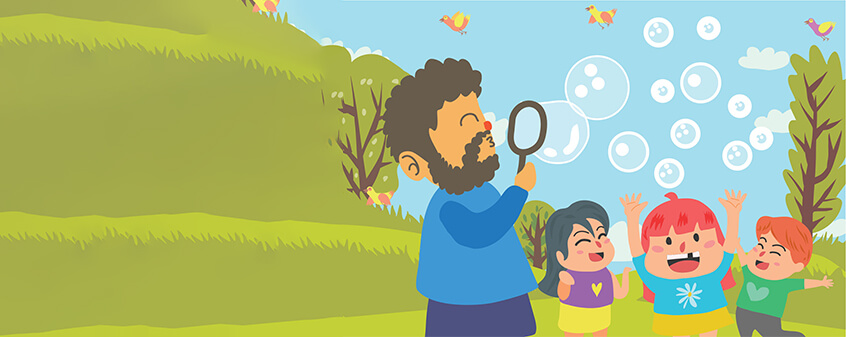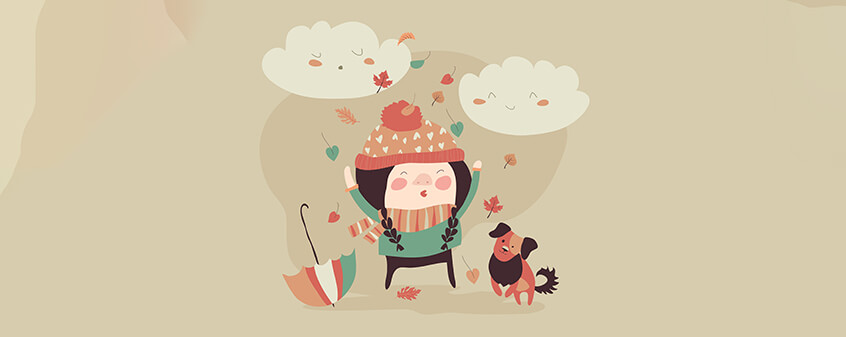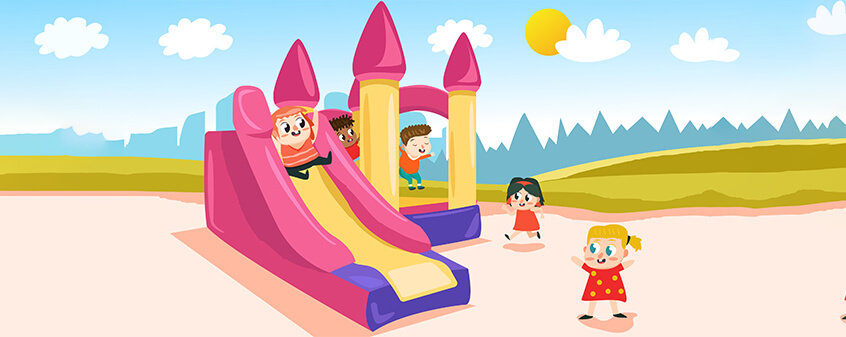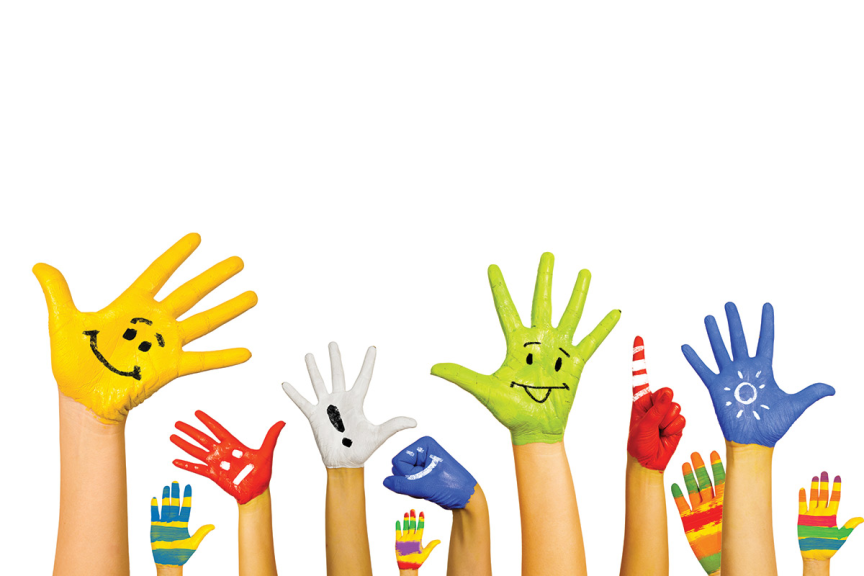LOL. ROLF. TTYL. TC. Anyone who is up-to-date will know that the above are no longer just acronyms. It’s today’s language. Love it, hate it, there’s no escaping it. In our dizzying lives, we use it to save time and energy. This evolved language is the first indicator that we live in a different age. The world resembles nothing of what we knew of it when we were growing up. The formidable black dial phones, Doordarshan on TV, endless play time, and families of six or even eight are dinosaurs of the past. Change has never been as accelerated as it is now. What is a new technology today is redundant in a few months. If we think today’s world is cutting edge and ‘fast’, we better think twice because the social and economic world of tomorrow is going to be nothing like we’ve ever imagined. Can you conjure up the world that is waiting for our children? I’m sure not. We as parents cannot exist in our ivory towers. We need to keep up. So in this era of abundant technology and globalization the question arises—what becomes of our children? How do you parent the child in this era of constant flux?
I deal with hundreds of children and their parents, each as different as the next. Yet over the years I have noticed one common thread that ties them all together—their questions. The questions are numerous and varied and they dodge me everywhere, not only as a parent of a now 21-year-old, but also in the role I play in educating hundreds of children who attend my schools. ‘How do I handle this situation?’, ‘How do I prepare my child to be ready for the future if I don’t know what the future will look like?’ Then there are other questions. Ones that are new and loaded with today’s context. ‘How do I know how much Facebook time to allow to my child?’ or ‘How many hours of Angry Birds is okay?’ or ‘Is it okay to let my daughter stay out with her friends on a school night out?’ or ‘How safe is it to upload photographs on the net?’ or ‘Should I give my 7-year-old a mobile phone?’
Parenting has a whole new meaning to it. Today, the challenge of bringing up a child has increased tenfold. It’s not just about your child getting the best grades in school or turning out ‘okay’, it’s about raising a global citizen who is intelligent and aware of his situation and that of others. I strongly believe that every child is born with an independent blueprint and you will notice it if you pay attention.
The confusion arises for parents in the Indian metros today who find themselves at crossroads. The influence of the West in daily life is high and I’ve observed that parents seem unsure as to what to teach their children. Style statements seem to be originating from young and hip channels like Channel V or MTV. Breakfast today consists of cornflakes or oats. Traditional food items like poha or parathas are making less of an appearance on our kids’ plates. Mumbai is confusing, as a city, to many parents. Traditional values are offset by modern points of view in the same city. The suburb of Bandra is very Westernized while the suburb of Vile Parle is still strongly rooted in tradition. Bandra is the hub of shopping, especially for Western apparel, while Vile Parle is a paradise for traditional Indian clothes. The trendiest bars and pubs, fine dining restaurants, and street food, it’s all available in Bandra, offering not just cosmopolitan cuisine, but a cosmopolitan experience too. Then there are Indian parents raising their children in the West. These parents seem to be caught in a time warp and want to raise their kids exactly like they themselves were raised in India, and impose severe restrictions on them.
Parenting a global citizen requires a global approach. The future is as unknown to a parent as it is to a child. Experiences of our parents and grandparents may not suffice as they were parenting for stability and conformity. What worked for your parents may not work for you! We are parenting for non-conformity. Today, parenting needs to be customized and personalized. Thus, there is no sure shot formula. It is a combination of family background, financial strength, social orientation, but, most importantly, the beliefs of the parents. So while you may let your kids choose their books, games, food, and clothes, you may find the need to regulate social manners and safety concerns. Teaching kids to have appropriate social behaviour has always been the prerogative of a parent. Parenting is a matter of walking the tight rope—being both taut and subtle.
Just as any major economic or social change has an implication on every aspect of life, globalization and the digital revolution have not only changed the way we work and play but also the way we educate and parent our kids. This generation of children need to be geared to do more right-brained tasks that involve creativity, problem solving strategies, communication, and emotional engagement. This, in turn, demands a major shift in the way the Indian education system works and what parents deem important for the child to learn. If our schools continue to focus on mathematical, analytical, and mechanical abilities that are rapidly being replaced by Google, machines, and technology and as parents we continue to value and perpetuate that focus, we Indians may end up as the back office of the Western world. I meet scores of Indian students who are brilliant academically and yet will struggle to make it big once they’re out of school. A CBSE topper who scored 100 percent in Class 12 in an English exam stated in an e-mail to Outlook: ‘It all depends on how one pen down the ideas… The flow in the language helped me fetched marks’. (sic) The criterion for success has changed. We have moved from a Knowledge Age to the Creative Age. Simply ‘knowing things’ does not serve any purpose. We have Google for that now. Getting 100 percent in a written paper is of no use if the child is unable to apply knowledge in daily life. Schools and parents have to work together to ensure that the child turns into a learner for life.
Gene N. Landrum in his book Entrepreneurial Genius: The Power of Passion, quotes Andrew Hacker, Professor of Political Science at Queens College: ‘On the whole, most individuals (with high IQ levels) will peak during their academic years or perhaps during an initial job they receive on the strength of test results. However, after that they will soon be surpassed by individuals who possess more applied forms of intelligence that are not revealed by the test.’ He also discusses American psychologist Paul Torrance who says that above 115 or 120, IQ scores have little or no bearing on creativity. Creative genius may be found anywhere along the scale except possibly at the bottom. In a University of California study, Frank Barron researched the influence of variables such as innovative success. He asserts: ‘…for certain intrinsically creative activities, a specific minimum IQ is necessary to engage in the activity, but beyond that minimum, which is surprisingly low, creativity has little correlation with scores on an IQ test.’ Our focus should be to prepare our children and youth for adult life success. Success tomorrow will depend on how our children ultimately make use of the knowledge and information that they receive today. How we educate our children may prove to be more important than what we are educating them. We need to teach them to tap their innate greatness? We need to hone the right-brained creative skills in our kids. We may soon become a country of BPOs if the focus of education continues to remain on high grades with no thinking involved. The NCERT recently deleted cartoons from its textbooks saying that they are politically insensitive. Every state wants certain opinions and points of view to be fed in its schools. Such politicization of education will ensure we create a nation of non-thinkers. Only a change in parenting style can make our children global citizens. If we want Indian children to be global citizens, we have to ensure that our kids have a world view of India and how the world looks at us. The child needs to develop an attitude that will rise above regional and religious identities. The child needs to be a global citizen first, a Maharashtrian and a Hindu later. For this, the parent has to keep the doors and windows of his mind and home open to cultural influences of all kinds. He needs to avoid discriminatory remarks against any community or religion. The experience of a world society at home will remain in the subconscious of a child while dealing with people or instances at a global level.
Over the years, a number of studies have been conducted that have examined the relationship between young people’s achievement and their levels of development of confidence, persistence, organization, interpersonal skills, and emotional resilience. In addition, areas of positive mind habits that include traits such as self-acceptance, internal locus of control for learning, optimism, non approval-seeking, goal setting, time management, reflective problem solving, etc., are also shown to have a positive impact on achievement. It is possible for teachers and parents to support, encourage, and develop a child’s social–emotional–motivational competence and I will explore these with you.








